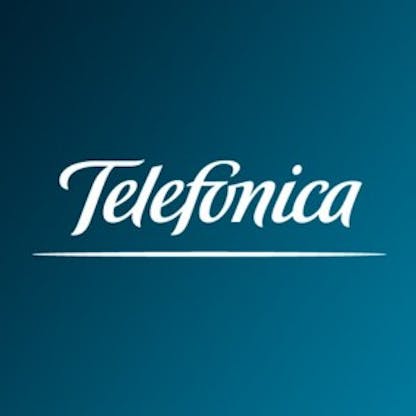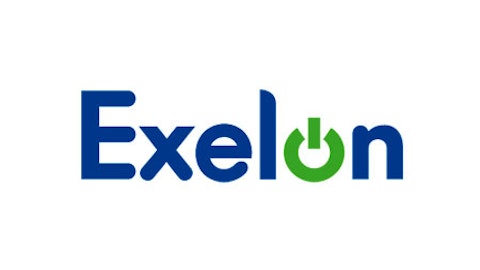After months of whispers and behind-the-curtain chit-chats, Spain-based telecommunications services provider Telefonica S.A. (ADR) (NYSE:TEF) shook hands on a deal with Dutch mobile operator RoyalKPN that’s supposed to rock the boat of the German market by knocking Deutsche Telekom and Vodafone Group Plc (ADR) (NASDAQ:VOD) out.
Could this deal enable Telefonica S.A. (ADR) (NYSE:TEF) to make up for its gloomy five-year revenue growth or should you just steer clear of this beaten-down stock?
The deal
Telefonica Deutschland (Telefonica S.A. (ADR) (NYSE:TEF)’s arm in Germany) is buying the Dutch telecom’s German mobile business (E-Plus) in a deal that includes a two-face investment process. Eventually, the Spanish juggernaut will take up a 65% stake in the combined entity while KPN will get a 17.6 % share plus €5 billion (nearly $6.6 billion) in cash. The rest will be left as free float.

The two telecoms have yet to get the go-ahead from EU regulators, as well as KPN’s shareholders. Telefonica S.A. (ADR) (NYSE:TEF) expects the whole process to be concluded in mid-2014. If KPN’s shareholders back down they’ll have to pay a €50 million ($66 million) breakup fee.
Overall, the merger is expected to generate synergies in the range of €5billion to €5.5 billion excluding integration costs while combined annual revenue is estimated to reach €8.6 billion (over $11 billion).
Going “all in”?
Over the past year, Telefónica has been unloading non-core operations trying to get its finances in the black. But, in this case it’s going “all in.” Telefonica first set foot into the German market in 2006, when it bought UK operator O2. With this new deal, it’s aiming at getting a firm grip on Europe’s biggest mobile market.
Based on the German Federal Network Agency’s latest figures, E-Plus has more than 23 million customers, and O2 counts 19.3 million clients. At the moment, British operator Vodafone Group Plc (ADR) (NASDAQ:VOD) and T-Mobile (Deutsche Telekom’s subsidiary) claim the lion’s share with 36.6 million and 33.9 million customers, respectively. The coming together of E-Plus and Telefonica Deutschland will create Germany’s largest mobile operator with a 43 million customer base that translates into a nearly 40% market share.
Consequently, there will be primarily three rivals shaping the country’s telecommunications services landscape and making Germany the least competitive market among the big five markets in Europe. So, antitrust regulators might have second thoughts about giving the green light. Nevertheless, if the deal is pulled off, the less competitive environment could leave some elbow room for sneaky price hikes, provided that these price hikes don’t tick regulators off.
Will Telefonica cash in on this deal?
Let’s say Telefonica brings antitrust regulators around and eventually becomes the No 1 operator in Germany. Does this mean that the company is set for a rally?
First of all, as antitrust experts say, it’s highly likely that Telefonica will be asked to give up some mobile spectrum since Brussels has to ensure that competition will remain intact before signing the dotted line. And with another mobile license auction coming up in Germany over the next two years, underdogs could sneak up to Telefonica and steal its thunder.
Secondly, the European telecommunications industry looks as if it has been through the wars. Apart from the doom and gloom in Europe that’s pushing consumers to switch from one operator to another seeking for better value or even turn to low-cost prepaid plans, EU regulators have been a real thorn in telecoms’ side. They’ve put a lid on mobile termination rates – charges mobile operators make to each other for connecting calls –, and, most recently, they imposed cuts on roaming charges.
Even in Germany – the Euro area’s sole bright spot –, where mobile rates are comparably pricey, things are not looking that good for industry players. For the first quarter of 2013, Deutsche Telekom’s German operations weren’t so up to par. As a result, its net revenues in the region followed a 1.6 %year-over-year downtrend. For the quarter ended June 30, Vodafone Group Plc (ADR) (NASDAQ:VOD)’s service revenue in Germany declined by 5.1% on an organic basis, reflecting lower market growth in both the consumer and enterprise segments.
And Telefonica Germany is no exception. Over the past six months, it experienced a 4.2% decline in revenues compared to the same period in 2012. Mobile average revenue per user (ARPU) took a 7.7% nosedive and mobile service revenue dropped by 4.3%. Total access base remained flat while operating income before depreciation and amortization (OIBDA) tumbled nearly 4%.
The Foolish bottom line
Whether the deal with KPN is going to bear fruit or not, it’s too soon to tell. The Spanish giant is definitely stepping its game up trying to cement its position in Europe’s biggest market. Either way, Telefonica S.A. (ADR) (NYSE:TEF)’s operations in Latin America help paint a brighter picture for its future.
During the second quarter, the company returned to organic growth mainly because of a whopping 10% year-over-year lift in revenues derived from its Latin America division. That might be one reason why the stock gets a 5-star rating from the Motley Fool CAPS Community. Not just that, but it’s also on the right track to narrow its huge debt pile down.
Yet, even though I do believe that all companies mentioned above – and particularly Telefonica – are worth keeping an eye on for upside trends, I have to admit that betting on a European telecom seems quite risky at the moment. Apart from the overall depressed market environment across the Euro area, you can never guess what regulators’ next move is going to be.
The article Does This Merger Make Telefonica A Must-Buy? originally appeared on Fool.com and is written by Fani Kelesidou.
Fani Kelesidou has no position in any stocks mentioned. The Motley Fool recommends Vodafone. Fani is a member of The Motley Fool Blog Network — entries represent the personal opinion of the blogger and are not formally edited.
Copyright © 1995 – 2013 The Motley Fool, LLC. All rights reserved. The Motley Fool has a disclosure policy.






